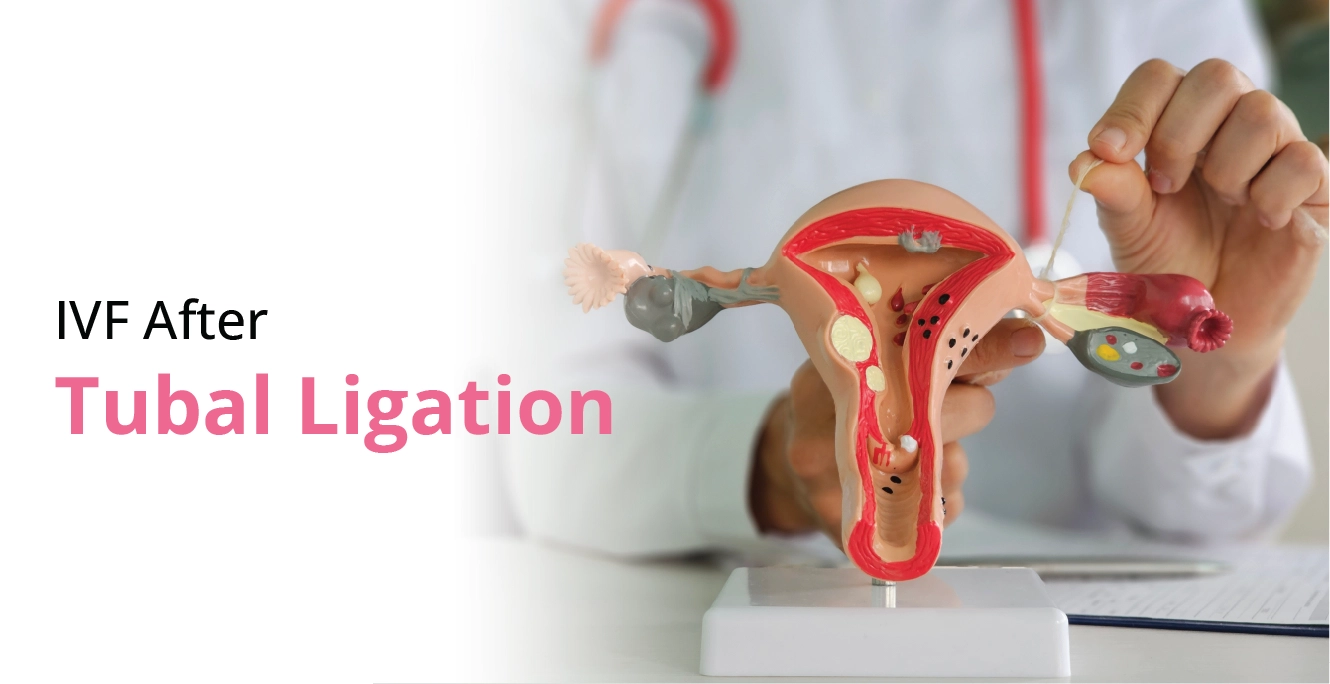
Side Effects of IVF Injections – Risks & Complications

Table of Contents
Starting an In Vitro Fertilisation (IVF) journey is exciting. However, having to take various injections in the process is a cause of anxiety for many. While these injections are crucial for stimulating the ovaries and increasing the chances of a successful pregnancy, they can also come with a range of side effects.
Herein, we’ll explore the different types of IVF injections and their potential side effects. We will also discuss strategies for coping with the side effects of IVF injections throughout your fertility journey. But, before that, let’s answer the fundamental questions of why you need IVF injections and what types of IVF injections are typically administered.
Why are IVF Injections Needed?
IVF treatment involves several steps, and one of the most important is the use of injectable fertility medications. These medications are designed to stimulate the ovaries to produce multiple eggs, increasing the chances of retrieving healthy eggs for fertilisation. Without these injections, the egg retrieval process would be less effective, potentially leading to lower success rates.
What you probably want to know!
Are IVF injections painful? Most people find the pain associated with IVF injections tolerable. You may feel some discomfort or have mild pain at the injection site. However, using the proper technique to administer the injection and using ice packs to numb the area before and after the shot can help reduce your discomfort. With time, most patients get over the “injection anxiety” they experience.
Types of IVF Injections
Throughout your IVF journey, you may encounter several types of injections, each serving a specific purpose. These include the following:
Trigger Injection Shots
-
Given once the eggs have sufficiently developed to trigger their final growth spurt and release
-
Common trigger injection shots include Novarel/Pregnyl®, Ovidrel®, and Leuprolide
Progesterone Injections
-
Used during the final phase of IVF to support successful implantation of the embryo and sustain a healthy pregnancy
-
Can be taken as intramuscular injections or vaginally in the form of suppositories and capsules
Oestrogen Injections
-
Sometimes prescribed in addition to or instead of progesterone
-
Can be administered topically as patches, orally, vaginally, or as injections
Follicle-Stimulating Hormone (FSH) and Human Menopausal Gonadotropin (hMG)
-
Used to stimulate the ovaries to produce multiple eggs
-
Often used in combination with other medications like Clomid (Clomiphene) to enhance their effects
Side Effects of IVF Injections
Although necessary, IVF injections, including hormone injections for IVF, may have side effects. The side effects of IVF injections can be categorized into physical, mental, and emotional effects. It’s important to remember that every woman’s experience is unique, and not everyone will encounter all of these side effects.
Short Term IVF Injection Side Effects
When you get those IVF shots, you might notice some things that don’t feel so great. Don’t worry, it’s pretty common! Here’s what you might experience:
-
Feeling sore: The spot where you got the shot might hurt a bit, look red, or feel swollen. It’s not fun, but it should go away soon.
-
Ovarian Hyperstimulation Syndrome (OHSS): OHSS is an excessive response to ovarian stimulation, leading to fluid leakage into the abdomen. While mild cases can be treated with rest and hydration, severe cases require hospitalisation.
-
Mood swings: Those hormones can really mess with your emotions. You might feel extra sensitive or moody. Make sure to let your doctor know if it’s bothering you.
-
Hot flashes: You know those hot flashes that come with menopause? Well, the meds for IVF can make you feel like that too. It’s annoying, but it won’t last forever.
-
Headaches and feeling sick: Don’t be surprised if you get some headaches or feel a bit nauseous. It’s a side effect of meds like Clomid and hCG shots.
-
Feeling bloated: Your tummy might feel full and uncomfortable, and you might have some mild cramps down there.
-
Allergic reactions: It’s not common, but some people might have an allergic reaction to the shots. If you get a rash, feel itchy, or have trouble breathing, get help right away!
Long Term IVF Injection Side Effects
The good news is, there’s no solid proof that IVF shots cause any major issues in the long run. Studies show that IVF doesn’t mess up your body for good.
-
No big risks: So far, it looks like IVF doesn’t hurt your ovaries or overall health in the long term. You might gain some weight during pregnancy, feel a bit sore where you got the shots, and have some mood swings, but that should all go away once you’re done with the treatment.
-
We need more info: There’s just not enough evidence out there to say that IVF shots cause any serious health problems down the line. Doctors and researchers are still keeping an eye on things, but for now, it seems like there aren’t any major long-term effects to worry about.
Side Effects of IVF Medications
Depending on what kind of IVF meds you’re taking, you might experience different side effects.
-
Pills (like Clomid):
-
Headaches
-
Hot flashes
-
Blurry vision
-
Feeling nauseous
-
Changes in your cervical mucus
-
Bloating
-
Higher chance of having twins or more!
-
-
Shots (like Menopur, Gonal-F, Luveris, Follistim):
-
Sometimes, you might get a blood blister where you got the shot
-
Swelling where you got the shot
-
A small chance of OHSS
-
A very small chance of having twins or more
-
Ectopic pregnancies (when the baby grows outside the womb)
-
-
hCG Shots:
-
Feeling irritable
-
Sore breast
-
Bruising where you got the shot
-
Hot flashes
-
Headaches
-
Feeling nauseous
-
Blurry vision
-
IVF Injection Side Effects on Mothers
Going through IVF can be tough on your body, both during and after the treatment.
-
OHSS: Like we talked about before, OHSS is a serious issue that can happen when your ovaries get too excited. You might feel pain and bloating in your lower belly, have trouble breathing, and just feel really sick overall.
-
Mood swings: Those hormones can make you feel all over the place emotionally. You might be irritable and restless.
-
Feeling uncomfortable: Bloating, tummy pain, and mild cramps are pretty common physical side effects.
-
Having more than one baby: With IVF, there’s a higher chance of having twins or more. This can lead to some complications like miscarriage, high blood pressure during pregnancy, pre-eclampsia, gestational diabetes, and anaemia.
-
Ectopic pregnancy: There’s a slightly higher risk of having an ectopic pregnancy with IVF. This is when the baby starts growing outside the womb and can cause pain in your tummy and bleeding or dark discharge from down there.
IVF Injection Side Effects on Baby
Babies born through IVF are usually just as healthy as babies made the old-fashioned way, but there are a few things to keep in mind:
-
Being born early and small: IVF babies have a higher chance of being born premature and weighing less than normal. This can make them more likely to have breathing problems (called NRDS) and long-term issues like cerebral palsy.
-
Overall health: Even with these risks, IVF babies are generally just as healthy as babies conceived naturally. There’s no proof that IVF babies are inherently weaker or less healthy.
Physical Side Effects of IVF Injections
The physical side effects of IVF injections can include the following:
-
Injection site reaction: Soreness, redness, or mild bruising at the injection site is common. Changing injection sites and icing the skin before intramuscular injections can help minimise this side effect.
-
Nausea and vomiting: Nausea is a common side effect of IVF injections. It can be due to the medication itself or the needle injection.
-
Hot flashes: Hormonal changes can cause hot flashes, which are sudden feelings of warmth across the body.
-
Headaches: Headaches are frequent, especially after injections. They can be managed with paracetamol but not NSAIDs, as they can interfere with ovarian expansion.
-
Bloating and abdominal pain: Bloating is similar to menstrual bloating and can last for several days. Abdominal pain can occur during or after egg retrieval, similar to menstrual cramping.
-
Breast tenderness: Hormonal medications can cause breast tenderness, similar to what some women experience with birth control or during their menstrual cycles.
-
Weight gain: Hormonal changes can lead to increased hunger and weight gain during the IVF process.
-
Allergic reactions: Some women may experience allergic reactions, such as skin itching or redness at the injection sites.
Mental and Emotional Side Effects of IVF Injections
IVF is in itself a very emotional journey, and some of the mental and emotional side effects that result from this can include:
-
Mood swings: Hormonal fluctuations can cause mood swings, irritability, and restlessness.
-
Emotional stress: The emotional rollercoaster of IVF, especially if cycles are unsuccessful, can be significant. It’s crucial to have support throughout the journey.
-
Fatigue: Physical symptoms like hot flashes and hormonal shifts can interfere with sleep, leading to fatigue.
Rare But Serious Complications
Some of the rare side effects of IVF injections include the following:
-
Ovarian Hyperstimulation Syndrome (OHSS): OHSS is an excessive response to ovarian stimulation, leading to fluid leakage into the abdomen. While mild cases can be treated with rest and hydration, severe cases require hospitalisation.
-
Pelvic infection: Pelvic infections are rare but can occur after egg retrieval. Symptoms include fever, pelvic pain, and vaginal discharge.
The Table below shows some of the specific side effects caused by common IVF injections, including the side effects of hormone injections for IVF:
|
Medication |
Side Effects |
|---|---|
|
Clomid (Clomiphene) |
Hot flashes, mood swings, headaches, bloating, nausea, breast tenderness |
|
Gonadotropins (FSH, hMG) |
Ovarian hyperstimulation syndrome (OHSS), bloating, cramping, mood swings, headaches |
|
Lupron (Leuprolide) |
Hot flashes, headaches, mood swings, fatigue, muscle and joint pain |
|
Progesterone |
Bloating, breast tenderness, mood swings, fatigue, constipation |
Trigger Injection Shot Side Effects
Trigger injections shots, usually containing hCG, are administered 36 hours before egg retrieval to help the eggs mature and loosen from the follicle wall. Common side effects of trigger injections include:
-
Injection site reactions (pain, swelling, redness)
-
Abdominal discomfort or bloating
-
Nausea and vomiting
-
Headaches
-
Fatigue
-
Mood swings
Treatment and Prevention Options for IVF injection Side Effects
To help manage and prevent side effects, there are a few things you can do:
-
Keep an eye on things: Your doctor will closely monitor you and adjust your meds if needed to lower the risk of things like OHSS. Catching any issues early on can help prevent serious complications.
-
One embryo at a time: To lower the chance of having twins or more, doctors often recommend transferring just one embryo at a time, especially for younger women.
-
Talk it out: Don’t be afraid to tell your doctor about any side effects you’re having. They can help you manage the emotional and physical symptoms.
-
Take care of yourself: Eating a balanced diet and staying active can help make side effects less severe. But always check with your doctor before making any big lifestyle changes.
How to Cope Throughout the Journey
Coping with the side effects of IVF injections can be challenging, but there are several strategies that can help:
-
Stay informed: Understand the purpose of each injection and its potential side effects to feel more prepared.
-
Proactively communicate with your partner and doctors: Share your experiences and concerns to receive support and guidance. Know that you are not alone in this journey.
-
Practice relaxation techniques: Deep breathing, meditation, or gentle yoga can help manage stress and emotional side effects.
-
Maintain a healthy lifestyle: Eat a balanced diet, stay hydrated, and engage in light exercise (with your doctor’s approval) to promote overall well-being.
-
Join a support group: Reach out to and connect with others who are going through similar experiences. This can provide a sense of community and understanding and help you cope with your situation better.
Word from the Expert:
IVF injections are a crucial step in many fertility treatments, but it’s essential to understand the potential side effects. By being informed and communicating openly with your healthcare provider, you can navigate this process with greater confidence and resilience. ~ Prachi Benara
Our Fertility Specialists
Related Blogs
To know more
Birla Fertility & IVF aims at transforming the future of fertility globally, through outstanding clinical outcomes, research, innovation and compassionate care.
Had an IVF Failure?
Talk to our fertility experts

 Our Centers
Our Centers













